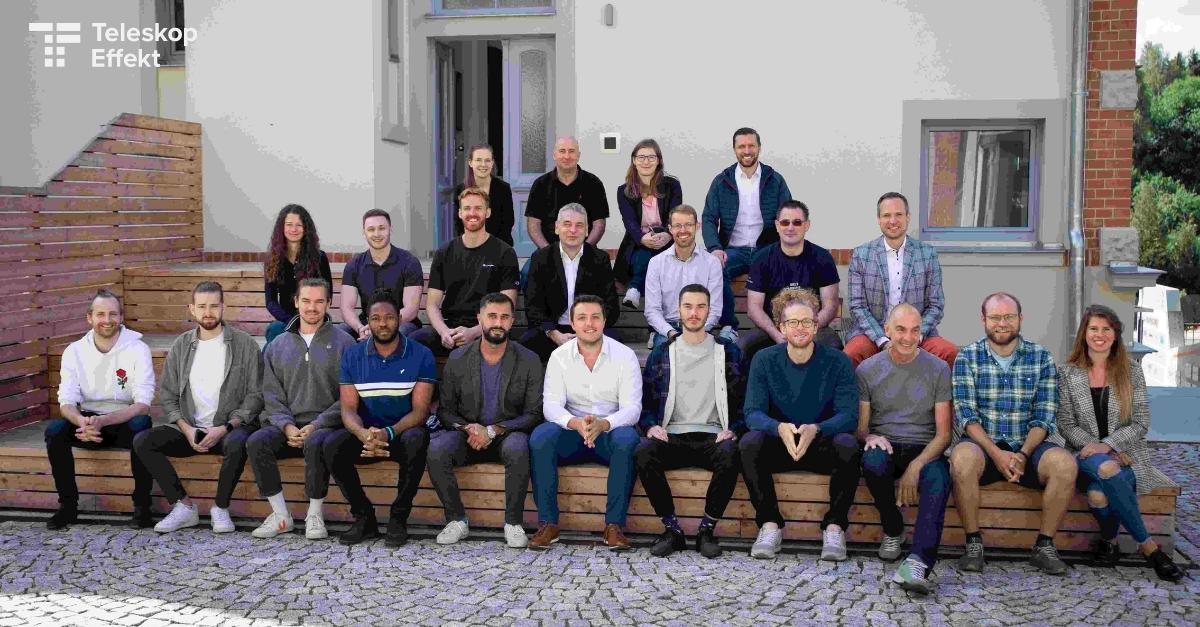
As part of the courses "Entrepreneurship and Digital Innovation Management I + II", under the responsibility of Prof. Dr. Alexander Knauer, students are supported over two semesters in realizing their own, mostly blockchain-based startup ideas.
In the first semester, students are taught the basics of entrepreneurship and the focus is on generating and sharpening business model ideas. The aim of the second semester is to work in teams to develop these business model ideas into concrete business models and a functioning prototype or minimum viable product.
The highlight of each semester is the presentation of the start-up ideas in front of a top-class jury. "The students get to know the start-up process in a realistic way, including presenting in front of a real jury consisting of blockchain experts, venture capitalists and industry and sector experts," says Knauer.
This summer semester, a total of five highly motivated start-up teams presented their start-up projects. Among other things, they developed a cashback-as-a-service provider that enables online stores to pay out cashback in crypto values. Under the motto "Bet on yourself. Move. Win." and based on a "move-to-earn" concept, the idea was developed of how a long-term sports routine can be established through sustainable, token-based incentives.
NFT games are usually expensive to get started with and without the right strategy, you can quickly lose the start-up capital you have invested. One start-up idea aims to solve precisely this problem by bringing beginners and experts together via an NFT coaching platform, making it easier for NFT game beginners to get started. Another team is addressing the growing camping and caravanning market and has developed a platform on which those looking for a pitch can find individual pitches. Furthermore, a solution for an easy-to-use wallet and an even simpler exchange of crypto values was designed.
It wasn't just the ideas that were excellently developed and presented. This year's jury was also more than competent:
- Sven Sieber, venture capitalist and owner of Gigahertz Ventures
- Steffen Kux, Co-Founder & Partner at corpus.ventures; former Chief of Product at slock.it / Blockchains LLC
- Jochen Gottschaldt, Head of Investment Management, SAB - Sächsische Aufbaubank - Förderbank
- Jörg Baldauf, Executive Partner IBM
- Michael Ascheron, Cluster Manager of the WIR! Blockchain Showcase Region Mittweida
- Tim Käbisch, research assistant in the WIR! Project CSI - Community Supported Insurance at the BCCM
- Dr. Julia Breßler, Innovation Architect TeleskopEffekt GmbH
Students also receive first-hand practical insights during the semester in order to optimally prepare for their own start-up later on. The guest speakers are international. Francis Pouatcha from Miami/USA, co-founder of Adorsys, kicked things off. Francis gave deep insights into the topics of layers, bridges, defi and his current wallet project. Christian Arndt from Hightech-Gründerfonds answered questions on all aspects of venture capital. Swen Hallasch, serial founder and business angel, reported on his founding experiences and his current DLT project at Spielworks GmbH. Christoph Jentzsch, founder of slock.it and corpus.ventures, kept the students in suspense with the founding of the first DAO in Mittweida and gave valuable tips for start-ups in the web3.0 environment. The list of guest speakers extended as far as Israel. Kevin Baxpehler, founder and managing director of the venture capital fund Remagine Ventures, reported on the start-up activities in the Metaverse, among other things.

In addition to promoting start-up activities, students are also involved in the WIR! Blockchain showcase region right from the start. As part of the blockchain showcase region, students have the opportunity to bring their ideas to life as part of potential implementation projects or to work on implementation projects that have already been launched.
With Werkbank32 and TeleskopEffekt GmbH at Bahnhofstraße 32 in Mittweida, students also find an ideal environment with access to a large innovation ecosystem and an excellent start-up infrastructure. "I am very pleased that we regularly use the rooms of the Innovation center of the workbench32 Here, the start-up spark is transmitted even more intensively to our students and our pitch day becomes a really big stage," says Alexander Knauer.